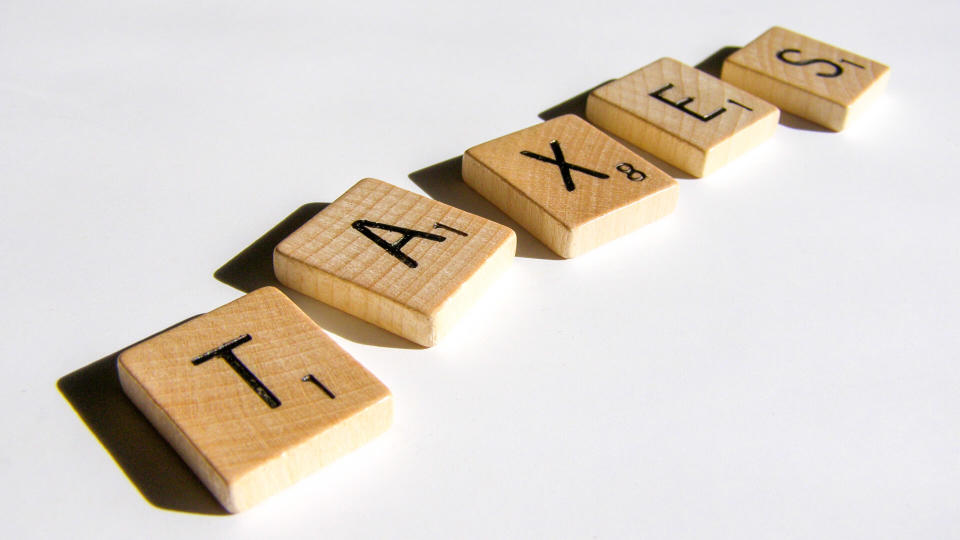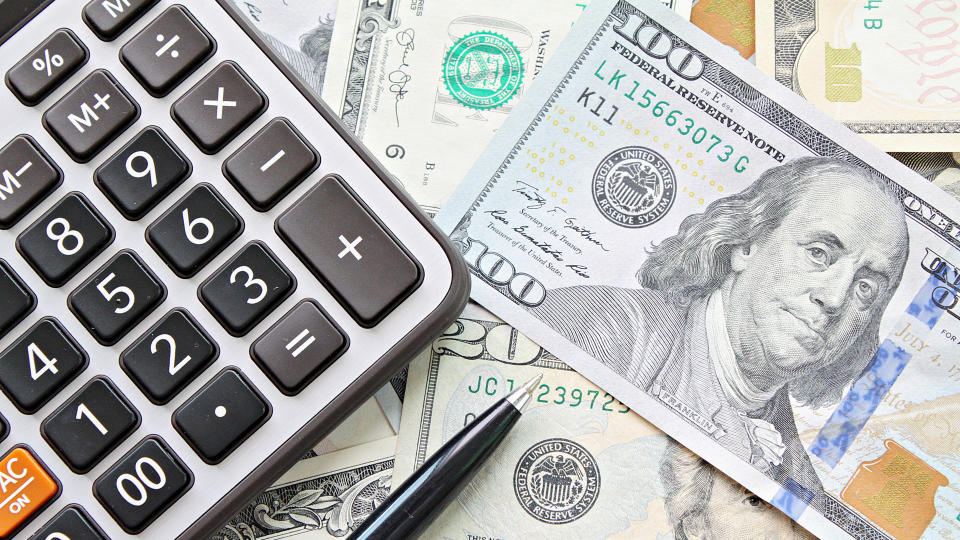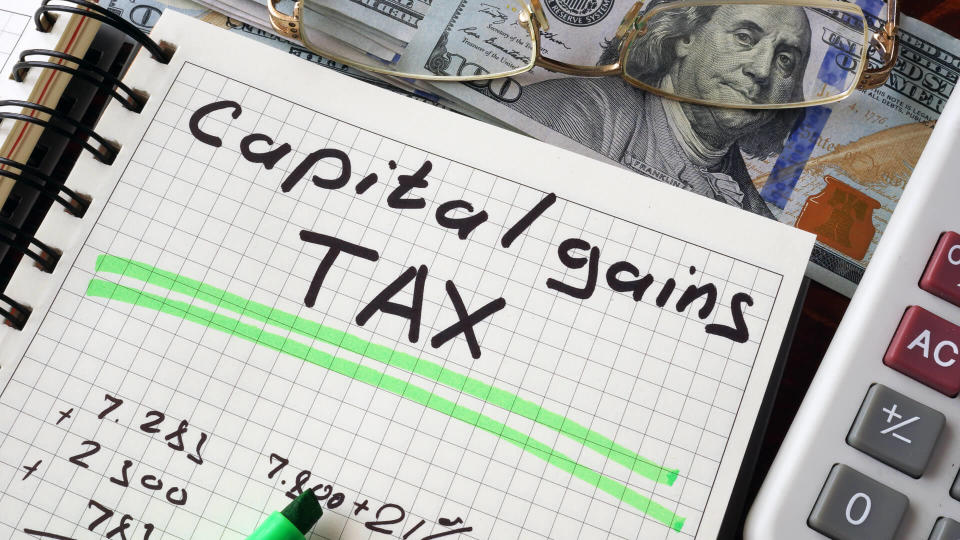Raising Taxes: Where Does Joe Biden Stand?
- Oops!Something went wrong.Please try again later.
“Tax the rich” is a phrase we heard a lot in 2020, a year that took income inequality to new heights as a deadly pandemic hit the poor the hardest. Now, as the Biden administration preps to take over the White House — straight after the Democrats won the Senate run-off races in Georgia — that seemingly all bark but no bite phrase might just have grown some teeth.
Find Out: How Much Is President-Elect Joe Biden Worth?
President-elect Joe Biden isn’t nearly as passionate about taxing the rich as other Democrats who also ran for the Democratic ticket: Sen. Bernie Sanders, for instance, proposed an upward sliding scale in his tax plan, seeing multimillionaires taxed as much as 52%. In comparison, Biden’s tax plan is modest or, to use a more politically appropriate word, centrist. But though far from extreme, Biden’s tax plan — likely to come true now thanks to both a Democratic Senate and a Democratic Congress — does include tax hikes for higher-income earners.
How does Biden’s tax plan work and will your taxes be raised? Here’s a look at some of the key aspects and what it means for your paycheck.
Last updated: Jan. 11, 2021

Repealing the SALT Deduction Cap
Biden will likely repeal the SALT deduction cap (SALT stands for State and Local Tax), which, under President Donald Trump’s tax plan, this cap was limited to $10,000.
“Biden has indicated he would like to repeal the cap, and so has incoming Senate Majority Leader Chuck Schumer and Speaker of the House Nancy Pelosi (whose constituencies in New York City and San Francisco have been hard hit by the cap),” said John Boyd, principal of the corporate consultancy firm The Boyd Company. “The cap has been a major driver of not just the wealthy — but also the middle class — out of states like New Jersey, New York and California to lower-taxed states in recent years. Repealing the cap will kick start and give new life to development activity in high property tax suburban markets.”
Would this raise your taxes?: No. Repealing the SALT deduction cap means that taxpayers who itemize their deductions can reduce their federal income tax liability by claiming a deduction for certain state and local taxes paid. In essence, this could do the opposite of raising your taxes, by lowering your liability.
In the News: Third Stimulus Check Likely Coming Under Biden – How Much Could You Get?

Raising the Corporate Tax Rate
“During his campaign Biden indicated that he would raise the corporate tax rate from 21% to 28% in addition to increasing the tax rates of America’s top wage earners,” said John McFarland, senior vice president with VensureHR.
Would this raise your taxes?: No — not if you’re filing as an individual or household. A corporate tax raise would only affect U.S.-based corporations. That said, a tax raise of this nature could affect you in more indirect ways in that it could inhibit the corporations you work for or want to work for.
“While this would no doubt provide revenue to pay down our growing deficit, which will continue to grow in 2021 with future COVID stimulus, it’s not the right time,” McFarland said. “When interest rates are lowered consumers increase their borrowing and investing activities spurring economic growth. Conversely, when tax rates are lower, businesses and business owners have more revenue to invest in their existing businesses or new projects, [catalyzing] job growth.”
Rather than raising the corporate tax rate immediately, it is more likely that Biden will wait until the economy — and its decimated small businesses — has had a chance to heal from the ongoing pandemic. An early December 2020 survey of CFOs by CNBC showed that no CFO consulted deemed it “very likely” that a corporate tax hike would be enacted. It could still very likely happen — especially now that the Democrats took the Senate, but in any case, it won’t affect your rate as an individual taxpayer.
Looking Ahead: Experts Predict What the Economy Will Look Like at the End of 2021

Raise Highest Tax Rate From 37% to 39.6%
“While Donald Trump’s Tax Cuts and Jobs Act (TCJA) reduced the highest individual tax rate to 37%, Biden plans to return the rate to 39.6% for taxable income over $400,000,” said Charlie Corsello, EA president, Tax Debt Help. “He also wants to limit itemized deductions for people earning over $400,000. His plan seeks to cap the tax benefit of itemized deductions to 28% of value for those earning more than $400,000.”
Corsello went on to explain that typically, the tax benefit of a deduction depends on your tax rate. “For instance, if you claim a $10,000 itemized deduction and your marginal tax rate is 30%, you receive a $3,000 tax benefit from that deduction,” he said. “With Biden’s plan, taxpayers earning over $400,000 would only be entitled to receive a $2,800 tax benefit from that same deduction.”
Would this raise your taxes?: Yes, but only if you make over $400,000 a year. In that case — and only in that case — your tax rate would go up over two percentage points, from 37% to 39.6%.
Find Out: What Are the 2020-2021 Federal Tax Brackets and Tax Rates?

Tax Capital Gains at 39.6% for Income Over $1 Million
“Biden’s plan taxes long-term capital gains and qualified dividends at the ordinary tax rate of 39.6% on income above $1 million,” Corsello said.
This one is a little more complicated than the last one, so here’s an example: Suppose you make $1.1 million per year in income. With that, $800,000 is from your salary and $300,000 is from your investments that are taxed at the capital gains rate. Under the Trump plan, you’d pay capital gains tax on $300,000 at the rate of 20%. With the Biden tax plan, you’d pay capital gains tax on the $300,000 at the same rate you’re paying taxes on the $800,000, which is 39.6%.
Would this raise your taxes?: Yes, but only if you make over $1 million in income and part of that income is long-term capital gains and/or qualified dividends.
Read More: These Are the Receipts To Keep for Doing Your Taxes

Eliminate the Step-Up Basis for Capital Gains
“Currently, if someone sells a capital asset that they inherit, they can use the fair market value of the asset at the time they inherited it as its basis when calculating their capital gain, but if the step-up basis is eliminated, they will have to use the same basis as the original owner,” Corsello said. “In other words, right now, taxpayers who inherit capital assets are not taxed on gains realized during the decedent’s lifetime, but under Biden’s plan, they would be taxed on these gains.”
Again, this one is a bit complicated. Let’s say your uncle died in 2020 and left you stock that was worth $1 million at the time of his death. You would have received what’s known as a step up in tax basis — meaning you could go ahead and sell off that stock for the million they were worth when your uncle died without any tax liability. But if your uncle dies under the Biden Tax Plan and leaves you a million bucks worth of stocks, and you go to sell those shares, you’d have a $990,000 taxable gain due and you’d be taxed on it at the top tax bracket of 39.6% because that $990,000 plus whatever you make on your own exceeds $1 million.
Would this raise your taxes?: Not exactly. Your income tax rate wouldn’t go up, but you would have to pay taxes on inherited gains that you wouldn’t have had to pay taxes on last year.
Find Out: All the New Numbers You Need To Know for Planning Ahead on Taxes

Expand the Social Security Payroll Tax
“Biden’s plan seeks to impose a 12.4% Social Security payroll tax (split between the employee and employer) on income over $400,000,” Corsello said. “Right now [under Trump], the Social Security tax phases out on income over $137,7000, and with the new plan, earnings between $137,7000 and $400,000 would still not face this payroll tax.”
Would this raise your taxes?: Yes, but again, only if you make over $400,000
More From GOBankingRates
Are You Spending More Than the Average American on 25 Everyday Items?
Guns and 32 Other Things You Definitely Do NOT Need To Buy During the Coronavirus Pandemic
This article originally appeared on GOBankingRates.com: Raising Taxes: Where Does Joe Biden Stand?

